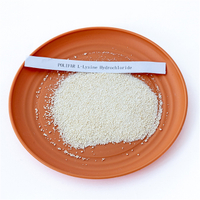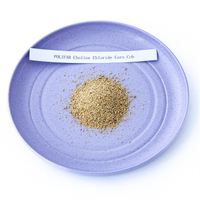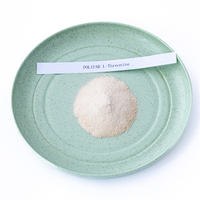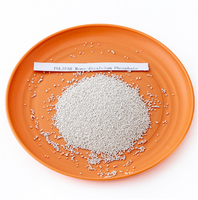Views: 0 Author: Site Editor Publish Time: 2024-08-22 Origin: Site








Vitamin A, a fat-soluble vitamin, is an essential nutrient that plays a crucial role in animal health and development. It is widely recognized for its impact on growth, reproduction, and immune function. In the animal feed industry, Vitamin A is a key additive used to enhance the nutritional value of feed, ensuring that animals receive the necessary nutrients for optimal health and productivity.
Vitamin A is a cornerstone of animal nutrition, offering a host of vital benefits:
Supports Growth and Development: Vitamin A is essential for proper growth, especially in young animals, promoting healthy bone development and tissue growth.
Enhances Immune Function: It boosts the immune system by maintaining the integrity of mucous membranes, which act as barriers against infections, leading to healthier animals.
Improves Reproductive Health: Adequate Vitamin A levels are crucial for fertility and successful reproduction, particularly in breeding animals.
Maintains Vision and Skin Health: Vitamin A plays a key role in maintaining good vision and healthy skin, preventing issues like night blindness and skin lesions.
Promotes Overall Well-being: By supporting various physiological functions, Vitamin A contributes to better feed efficiency, higher productivity, and improved animal welfare.
These benefits make Vitamin A an essential component in animal feed, ensuring optimal health and performance across various livestock species.
Vitamin A is widely used in various animal feeds to support health, growth, and productivity across different species. Here’s how it is applied in specific types of livestock:
Poultry:
Broilers and Layers: Vitamin A is crucial for maintaining vision, skin health, and immune function in poultry. It supports proper growth, feathering, and egg production while preventing issues like respiratory infections and poor feather quality.
Swine:
Piglets and Sows: In swine, Vitamin A enhances immune responses, supports reproductive health, and aids in preventing conditions such as poor vision, dry skin, and poor growth rates. For sows, adequate Vitamin A levels are vital for successful pregnancies and healthy piglets.
Cattle:
Dairy Cows and Beef Cattle: For cattle, Vitamin A is essential for maintaining reproductive efficiency, boosting milk production, and supporting overall growth. It helps prevent conditions such as night blindness and rough, dry skin, which can affect the animal's well-being and productivity.
Aquaculture:
Fish and Shrimp: In aquaculture, Vitamin A supports growth, feed efficiency, and overall health in species like fish and shrimp. It helps maintain the integrity of epithelial tissues, which are crucial for protecting against infections in aquatic environments.
By targeting the specific needs of each species, Vitamin A plays a vital role in ensuring that animals reach their full potential in terms of health, growth, and productivity.
To achieve the desired benefits, it is important to adhere to recommended dosages when adding Vitamin A to animal feed. The inclusion rates vary depending on the species and the life stage of the animal. For instance, growing animals require higher levels of Vitamin A to support their rapid development. The vitamin can be incorporated into feed through premixes or concentrates. However, it is important to avoid over-supplementation, as excessive Vitamin A can lead to toxicity, causing adverse health effects in animals.
Improved Growth Rates in Poultry:
A study conducted on broiler chickens revealed that those supplemented with Vitamin A showed a significant increase in growth rates compared to unsupplemented groups. The birds exhibited better weight gain, stronger bones, and improved overall vitality. The study concluded that adequate Vitamin A is crucial for optimizing growth performance in poultry.
Enhanced Reproductive Health in Dairy Cows:
Research involving dairy cows demonstrated that Vitamin A supplementation led to higher conception rates and reduced the occurrence of reproductive disorders such as retained placentas. Cows receiving sufficient Vitamin A also gave birth to healthier calves with better survival rates, underlining the vitamin's essential role in reproductive success.
Strengthened Immune Function in Swine:
A study on piglets showed that those with adequate Vitamin A supplementation had significantly lower incidences of respiratory infections and diarrhea. The improved immune response was linked to the vitamin’s role in maintaining the integrity of mucosal barriers, which are crucial for preventing infections in young pigs.
Healthier Skin and Coat in Beef Cattle:
In beef cattle, Vitamin A supplementation was associated with a notable improvement in skin and coat health. Animals receiving the vitamin had fewer skin lesions and a shinier, healthier coat, contributing to better overall appearance and market value.
These studies underscore the importance of Vitamin A in animal feed, demonstrating its profound effects on growth, immune function, reproduction, and overall health across various livestock species.
Vitamin A vs. Vitamin D:
Function: Vitamin A is primarily involved in vision, immune function, and cellular growth, while Vitamin D plays a critical role in calcium absorption and bone health.
Impact: While both vitamins are fat-soluble and essential for growth and development, Vitamin A’s broader influence on immune health and reproduction makes it indispensable across all stages of animal life. On the other hand, Vitamin D is vital for preventing rickets and ensuring strong bone formation.
Vitamin A vs. Vitamin E:
Function: Vitamin A supports vision, immune function, and skin health, whereas Vitamin E is a potent antioxidant that protects cells from oxidative stress.
Impact: Though both vitamins contribute to immune function, Vitamin A is directly involved in preventing infections through the maintenance of mucosal barriers. Vitamin E, however, is crucial for protecting tissues from damage and supporting reproductive health, particularly in breeding animals.
Vitamin A vs. Vitamin K:
Function: Vitamin A is essential for vision, growth, and maintaining epithelial tissues, while Vitamin K is vital for blood clotting and bone metabolism.
Impact: Vitamin K’s role is more specialized, focusing on coagulation and bone health, whereas Vitamin A’s benefits extend to various physiological functions, making it critical for overall health and productivity. Without adequate Vitamin A, animals can suffer from night blindness, poor growth, and weakened immunity, highlighting its broader significance in feed.
Vitamin A vs. B Vitamins (e.g., B12, B6):
Function: Vitamin A is involved in growth, immunity, and reproduction, while B vitamins primarily support energy metabolism and nervous system function.
Impact: While B vitamins are essential for energy production and maintaining healthy nerve function, Vitamin A’s role in vision, immune defense, and skin integrity addresses more diverse aspects of animal health. The lack of Vitamin A can lead to more pronounced deficiencies in growth, reproductive health, and immune function compared to B vitamins.
Conclusion
Each vitamin plays a unique and vital role in animal nutrition, but Vitamin A’s impact on vision, immune function, growth, and reproduction sets it apart. When formulating feed, it’s important to ensure balanced supplementation, with Vitamin A being a key component to promote overall health and productivity.
When selecting Vitamin A feed additives, it is essential to consider factors such as stability, bioavailability, and quality standards. Vitamin A is sensitive to light, heat, and oxygen, which can reduce its potency over time. Therefore, high-quality formulations with enhanced stability are preferred to ensure the vitamin's efficacy throughout the feed's shelf life. Additionally, compliance with industry standards and certifications is crucial for ensuring the safety and effectiveness of the additive.
Vitamin A is an indispensable nutrient in animal feed, offering a range of benefits that enhance animal health, growth, and productivity. By understanding its applications, proper dosage, and quality considerations, livestock producers can maximize the advantages of Vitamin A. However, recent disruptions, such as the BASF explosion, have affected the global supply chain, highlighting the importance of securing Vitamin A from reliable sources. For those seeking to optimize their feed formulations, sourcing Vitamin A from reputable suppliers is essential to achieving consistent and reliable results.
By integrating high-quality Vitamin A feed additives into animal nutrition programs, producers can ensure the well-being of their animals while driving sustainable and profitable farming practices.






